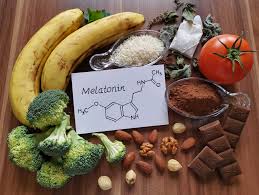

Balancing hormones naturally involves a holistic approach encompassing diet, lifestyle, and stress management. Here are effective strategies to help restore hormonal equilibrium:
- Adopt a Whole-Foods, Anti-Inflammatory Diet: Consume a variety of fruits, vegetables, lean proteins, and healthy fats to support hormone production and reduce inflammation. Incorporate foods rich in omega-3 fatty acids, such as fatty fish, and fiber-rich options like legumes and whole grains. These choices can enhance insulin sensitivity and support thyroid function.
- Prioritize Sleep: Aim for 7–9 hours of quality sleep per night to regulate hormones like cortisol, insulin, and ghrelin. Establish a consistent sleep schedule, create a relaxing bedtime routine, and minimize screen exposure before sleep to improve sleep quality.
- Manage Stress Effectively: Chronic stress elevates cortisol levels, disrupting hormonal balance. Engage in stress-reducing activities such as meditation, deep-breathing exercises, yoga, or spending time in nature to promote relaxation and hormonal stability.
- Exercise Regularly: Incorporate both aerobic and strength-training exercises into your routine to enhance insulin sensitivity, regulate thyroid function, and support overall hormonal health. Aim for at least 150 minutes of moderate-intensity exercise per week.
- Maintain a Healthy Weight: Excess body fat, particularly around the abdomen, can disrupt hormone levels, including insulin and estrogen. Focus on balanced nutrition and regular physical activity to achieve and maintain a healthy weight.
- Limit Exposure to Endocrine Disruptors: Reduce contact with chemicals that can interfere with hormone function, such as BPA, phthalates, and parabens. Opt for natural personal care products, avoid plastic containers for food storage, and choose organic foods when possible to minimize exposure.
By integrating these practices into your daily life, you can support your body's natural hormone balance and enhance overall well-being.




 click and follow Indiaherald WhatsApp channel
click and follow Indiaherald WhatsApp channel